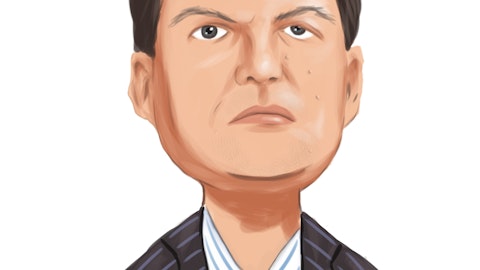Avenue Capital Group, founded in 1995 by Marc Lasry and his sister Sonia Gardner, built its reputation by succeeding in markets where others saw only failure. While many investors avoided distressed assets, Lasry saw them as opportunities. His ability to assess struggling businesses, acquire debt at a discount, and restructure them for profit made Avenue Capital a leader in the hedge fund industry.
With an initial investment of $7 million in personal capital, the firm expanded rapidly, managing as much as $11 billion at its peak. Unlike traditional investment firms that focus on stable, high-growth companies, Avenue Capital specializes in distressed debt—buying assets others have written off, transforming them into profitable ventures and exiting for profit.

The Art of Investing in Distressed Debt
Lasry’s investment strategy is both aggressive and calculated. Avenue Capital focuses on companies in financial distress, purchasing their debt at a fraction of its original value. Once acquired, the firm works to restructure the business, stabilize operations, and position it for recovery. When the company regains financial health, its debt increases in value, creating high returns.
This strategy requires more than just capital—it demands deep market insight and an almost uncanny eye for value. Not every struggling business can be saved, and Lasry’s ability to determine which companies have a viable path forward is what sets Avenue Capital apart. By leveraging legal expertise, financial analysis, and industry connections, the firm has consistently turned troubled assets into profitable investments.
One of the more notable moves made by Marc Lasry came in 2010 when he took control of Trump Entertainment Resorts, which had just entered its third bankruptcy. His firm successfully advised stakeholders and played a pivotal role in the restructuring process, proving once again that under the right conditions, even struggling businesses can be revived.
Profiting From Crisis
Economic downturns often create the best conditions for distressed debt investing. When markets collapse, businesses struggle to stay afloat, and their debt trades at significant discounts. Instead of retreating or consolidating during financial crises, Avenue Capital is proactive, acquiring assets that others are eager to offload.
During the 2008 financial crisis, the firm capitalized on opportunities as liquidity dried up and major financial institutions faced severe losses. This same strategy applied during the Puerto Rican government-debt crisis, where Avenue Capital invested in bonds that had lost the confidence of investors. These calculated risks, taken when markets were at their lowest, reinforced Avenue Capital’s reputation for identifying opportunity and thriving in uncertain times.
Lasry’s ability to navigate financial crises is a defining factor in his success. He understands that panic-driven markets create mispriced assets. Rather than reacting emotionally, Avenue Capital takes a measured approach—assessing which investments have a realistic path to recovery and positioning itself to profit when stability returns.
Expanding Beyond U.S. Markets
While Avenue Capital initially focused on distressed debt in the United States, Marc Lasry saw potential beyond domestic markets. The firm expanded into Europe and Asia, applying the same investment principles across different economic landscapes. This global reach allowed Avenue Capital to navigate international financial challenges and seize opportunities in multiple regions.
Expansion wasn’t just about accessing new markets—it was about diversification. By investing across different economies, the firm reduced risk exposure and strengthened its ability to generate returns regardless of regional downturns. With distressed debt available in varying economic conditions worldwide, Avenue Capital positioned itself to capitalize on financial struggles across multiple industries and continents.
Balancing Risk and Reward
Investing in distressed assets carries significant risk. Not every struggling company makes a full recovery, and sometimes debts become worthless. However, Avenue Capital mitigates these risks through rigorous financial analysis, legal expertise, and careful selection of investments.
Lasry’s approach focuses on restructuring rather than speculation. Unlike hedge funds that take short-term, high-risk positions, Avenue Capital looks for opportunities where strategic management can add value. The firm’s success is built on a detailed understanding of how bankruptcies work, how businesses can be revitalized, and how financial markets misprice risk in uncertain times.
By combining financial acumen with legal expertise, Avenue Capital consistently generates strong returns, proving that distressed investing isn’t just about taking risks—it’s about managing them effectively.
Lessons from Avenue Capital’s Success
Marc Lasry has built Avenue Capital Group on a foundation of strategic risk-taking, deep financial analysis, and a willingness to tread where others fear to. His approach proves that wealth isn’t only made during economic booms—it can also be created in downturns, as long as the right opportunities are identified.
For investors, the key takeaway is clear: success isn’t about avoiding risk but understanding it. Those who study markets, recognize value in underperforming assets, and make informed decisions can turn financial uncertainty into long-term gains. Avenue Capital’s history is a testament to the power of bold, intelligent investing.
Lasry’s success demonstrates that market volatility isn’t something to fear—it’s something to leverage. By understanding economic cycles, spotting mispriced assets, and making strategic investments in difficult times, Avenue Capital has built a legacy that continues to thrive in the unpredictable world of high-stakes finance.





